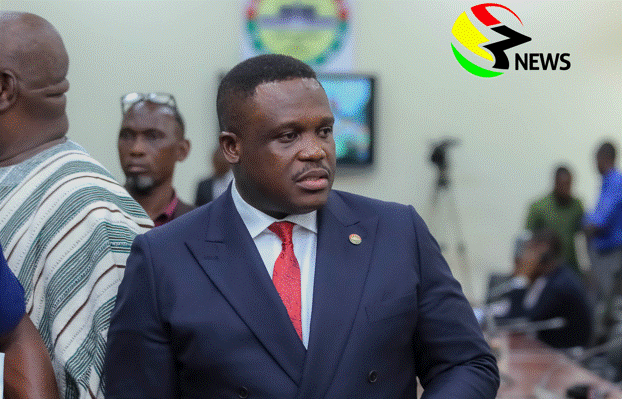Stop complaining and fix it yourselves — NDC’s Nukpenu tells Botwe residents over bad roads

The Greater Accra Regional Organiser of the National Democratic Congress (NDC), Anthony Nukpenu, has suprised many Ghanaians after urgeing residents of Botwe to take initiative in addressing their own community challenges instead of relying solely on government intervention.
During an interview on Asempa FM’s Ekosii Sen monitored by MyNewsGh, host OB read a message from some Botwe residents pleading for their Member of Parliament and the government to fix their deteriorating roads. Nukpenu, who was in the studio at the time, was quick to respond with what many have described as a blunt retort.
“When people live in a community and they are plagued by a problem that affects them directly or indirectly, they should mobilize their resources together to fix it instead of complaining,” he said.
He expressed frustration at what he described as a national tendency to complain about every issue, adding that such attitudes put unnecessary pressure on the government.
“Ghanaians like to complain about everything,” he stated. “But the truth is, government cannot solve every single problem. If a road becomes deplorable and is not captured in the budget within a specific timeframe, it becomes difficult to fix it immediately.”
Nukpenu went further to suggest that residents of Botwe, whom he described as well-to-do individuals, have the means to address the issue themselves.
“That area is inhabited by rich people,” he noted. “They can easily put their heads together and work on it before the government eventually steps in.”
His comment drew an immediate response from OB, who reminded him that the residents also pay taxes and therefore have the right to demand accountability and development.
But Nukpenu pushed back. “They are not the only taxpayers,” he replied.
“There are people in other communities who also pay taxes but have to drive through bushes to get to their homes. Yet, they don’t make as much noise.”
He concluded by stressing that the government’s attention is largely directed toward “roads of economic importance,” suggesting that areas with more immediate national value take precedence in development planning.





